Peugeot 208 vs VW T-Cross - Differences and prices compared
Compare performance (156 HP vs 150 HP), boot space and price (20700 £ vs 21400 £ ) at a glance. Find out which car is the better choice for you – Peugeot 208 or VW T-Cross?
Costs and Efficiency:
Price and efficiency are key factors when choosing a car – and this is often where the real differences emerge.
Peugeot 208 has a minimal advantage in terms of price – it starts at 20700 £ , while the VW T-Cross costs 21400 £ . That’s a price difference of around 712 £.
Fuel consumption also shows a difference: Peugeot 208 manages with 4.50 L and is therefore distinct more efficient than the VW T-Cross with 5.40 L. The difference is about 0.90 L per 100 km.
Engine and Performance:
Power, torque and acceleration are the classic benchmarks for car enthusiasts – and here, some clear differences start to show.
When it comes to engine power, the Peugeot 208 has a minimal edge – offering 156 HP compared to 150 HP. That’s roughly 6 HP more horsepower.
In acceleration from 0 to 100 km/h, the Peugeot 208 is minimal quicker – completing the sprint in 8.30 s, while the VW T-Cross takes 8.40 s. That’s about 0.10 s faster.
There’s also a difference in torque: Peugeot 208 pulls hardly perceptible stronger with 270 Nm compared to 250 Nm. That’s about 20 Nm difference.
Space and Everyday Use:
Whether family car or daily driver – which one offers more room, flexibility and comfort?
Both vehicles offer seating for 5 people.
In curb weight, Peugeot 208 is barely noticeable lighter – 1165 kg compared to 1267 kg. The difference is around 102 kg.
In terms of boot space, the VW T-Cross offers distinct more room – 455 L compared to 352 L. That’s a difference of about 103 L.
When it comes to payload, VW T-Cross slightly takes the win – 480 kg compared to 430 kg. That’s a difference of about 50 kg.
Who wins the race in the data check?
The Peugeot 208 is clearly superior overall in the objective data comparison.
This result only shows which model scores more points on paper – not which of the two cars feels right for you.
Costs and Consumption
View detailed analysis
Engine and Performance
View detailed analysis
Dimensions and Body
View detailed analysis

Peugeot 208
Peugeot 208
The Peugeot 208 feels like a city-savvy fox: compact, stylish and surprisingly grown-up, with a cabin that punches above its weight and enough personality to make daily commutes a little less boring. It’s a smart pick for buyers who want chic practicality without the showroom bluster — easy to park, thrifty to run and oddly fun when the road tightens up.
details



VW T-Cross
The VW T-Cross turns everyday practicality into a style statement, offering a roomy-feeling cabin, clever storage and playful design that suits town life and family duties alike. On the road it's composed and relaxed, rewarding buyers who want the raised seating and confident presence of an SUV without the weighty compromises.
details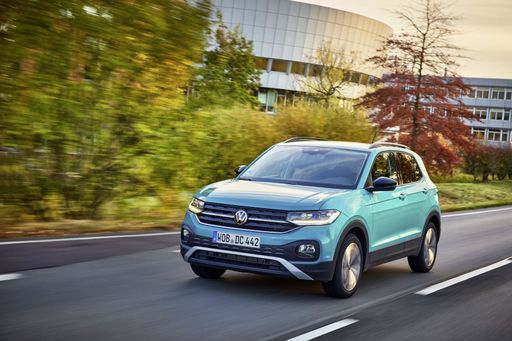
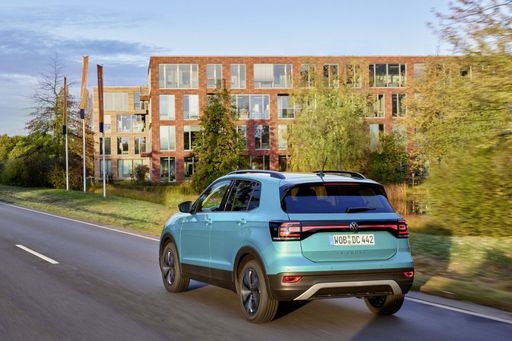
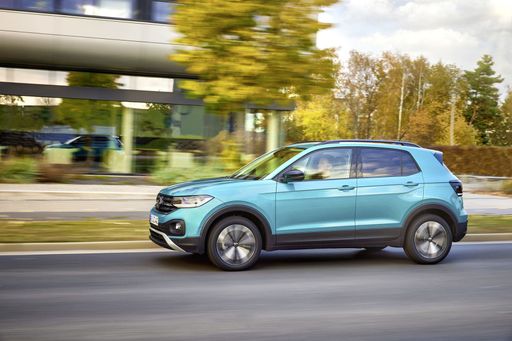
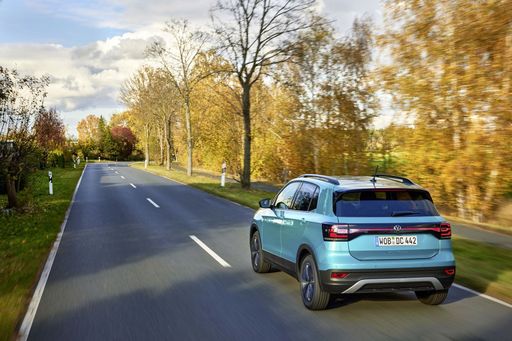
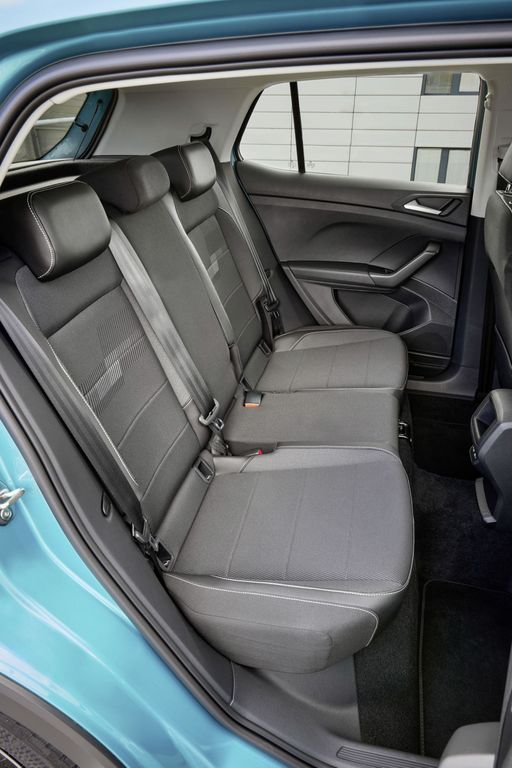
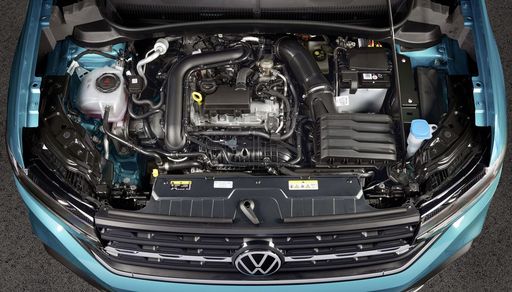
Costs and Consumption |
|
|---|---|
|
Price
20700 - 35200 £
|
Price
21400 - 32000 £
|
|
Consumption L/100km
4.5 - 5.2 L
|
Consumption L/100km
5.4 - 6 L
|
|
Consumption kWh/100km
14.1 - 15.4 kWh
|
Consumption kWh/100km
-
|
|
Electric Range
362 - 432 km
|
Electric Range
-
|
|
Battery Capacity
46 - 51 kWh
|
Battery Capacity
-
|
|
co2
0 - 117 g/km
|
co2
124 - 136 g/km
|
|
Fuel tank capacity
44 L
|
Fuel tank capacity
-
|
Dimensions and Body |
|
|---|---|
|
Body Type
Hatchback
|
Body Type
SUV
|
|
Seats
5
|
Seats
5
|
|
Doors
5
|
Doors
-
|
|
Curb weight
1165 - 1530 kg
|
Curb weight
1267 - 1338 kg
|
|
Trunk capacity
309 - 352 L
|
Trunk capacity
455 L
|
|
Length
4055 mm
|
Length
-
|
|
Width
1745 mm
|
Width
1784 mm
|
|
Height
1430 mm
|
Height
-
|
|
Max trunk capacity
1118 - 1163 L
|
Max trunk capacity
-
|
|
Payload
380 - 430 kg
|
Payload
463 - 480 kg
|
Engine and Performance |
|
|---|---|
|
Engine Type
Petrol, Electric, Petrol MHEV
|
Engine Type
Petrol
|
|
Transmission
Manuel, Automatic
|
Transmission
Manuel, Automatic
|
|
Transmission Detail
Manual Gearbox, Reduction Gearbox, Dual-Clutch Automatic
|
Transmission Detail
Manual Gearbox, Dual-Clutch Automatic
|
|
Drive Type
Front-Wheel Drive
|
Drive Type
Front-Wheel Drive
|
|
Power HP
101 - 156 HP
|
Power HP
95 - 150 HP
|
|
Acceleration 0-100km/h
8.3 - 10.9 s
|
Acceleration 0-100km/h
8.4 - 11.3 s
|
|
Max Speed
150 - 200 km/h
|
Max Speed
-
|
|
Torque
205 - 270 Nm
|
Torque
175 - 250 Nm
|
|
Number of Cylinders
3
|
Number of Cylinders
3 - 4
|
|
Power kW
74 - 115 kW
|
Power kW
70 - 110 kW
|
|
Engine capacity
1199 cm3
|
Engine capacity
999 - 1498 cm3
|
General |
|
|---|---|
|
Model Year
2023 - 2025
|
Model Year
2024 - 2025
|
|
CO2 Efficiency Class
D, A, C
|
CO2 Efficiency Class
D, E
|
|
Brand
Peugeot
|
Brand
VW
|
What drive types are available for the Peugeot 208?
The Peugeot 208 is offered with Front-Wheel Drive.
